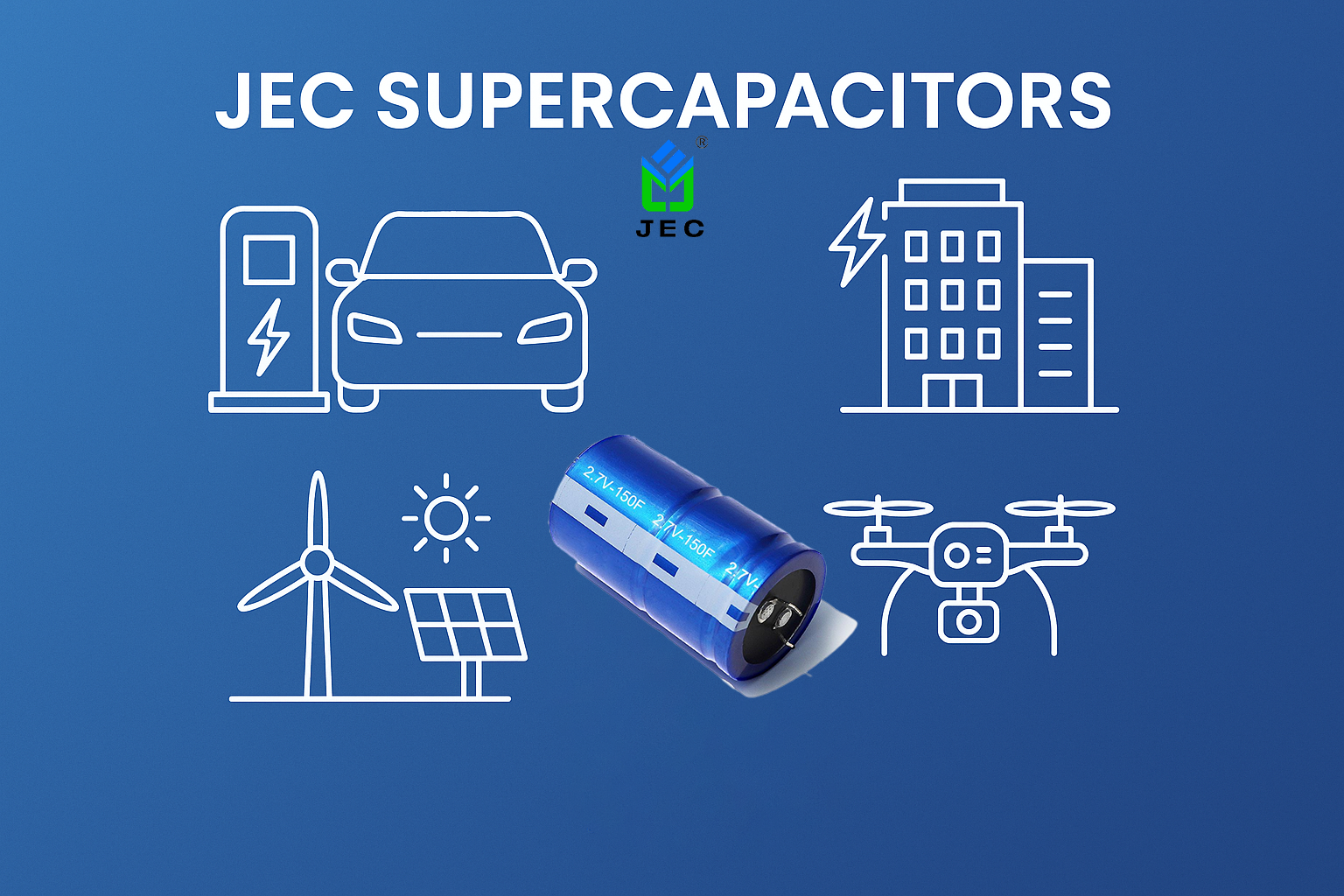Among various energy storage components, one stands out in the electronics market due to its compact size, large capacity, and rapid charge-discharge performance — the supercapacitor.
Also known as an electrochemical capacitor, a supercapacitor is a novel energy storage device that bridges the gap between traditional capacitors and batteries. It stores energy through an electric field, forming an electric double-layer structure at the interface between the electrode and the electrolyte.
In addition to advantages such as compact size, high capacity, and fast charging and discharging, supercapacitors are known for their high power density, which is significantly greater than that of batteries. This feature makes them a preferred choice for high-power applications and electronic devices.
Why do supercapacitors have higher power density than batteries?
Here are a few key reasons:
Energy Storage Mechanism
Supercapacitors store energy mainly through electric double-layer capacitance and redox (pseudocapacitance) reactions.
The electric double layer at the interface between the electrode and electrolyte has a strong ability to store charge, enabling supercapacitors to hold large amounts of energy quickly, which contributes to their high power density.
Redox reactions in supercapacitors occur on or near the surface of the electrode material and are highly reversible and fast. This rapid reaction rate enhances energy storage capacity and, consequently, increases power density.
Low Internal Resistance
Supercapacitors use electrode materials with high surface area and excellent conductivity, which significantly reduces internal resistance.
Lower resistance allows smoother charge transfer and reduces energy loss, leading to higher power output.
Optimized Structural Design
The structure of supercapacitors is engineered to minimize the distance between electrodes and maximize contact between the electrodes and the electrolyte.
This boosts charge transfer efficiency and further elevates power density compared to batteries.
These are the primary reasons why supercapacitors typically offer higher power density than batteries.
However, when selecting a supercapacitor, power density is just one factor. Other parameters such as capacity, voltage range, life cycle, and overall quality must also be considered to ensure the stable performance of electronic devices.
What makes supercapacitors the go-to choice for high-power applications? It all starts with their exceptional power density.
This article is provided by JYH HSU (JEC) Electronics. JEC is a research, development, production, and sales-oriented company specializing in manufacturing and selling various electronic components such as capacitors and resistors.
Post time: Jun-17-2025

